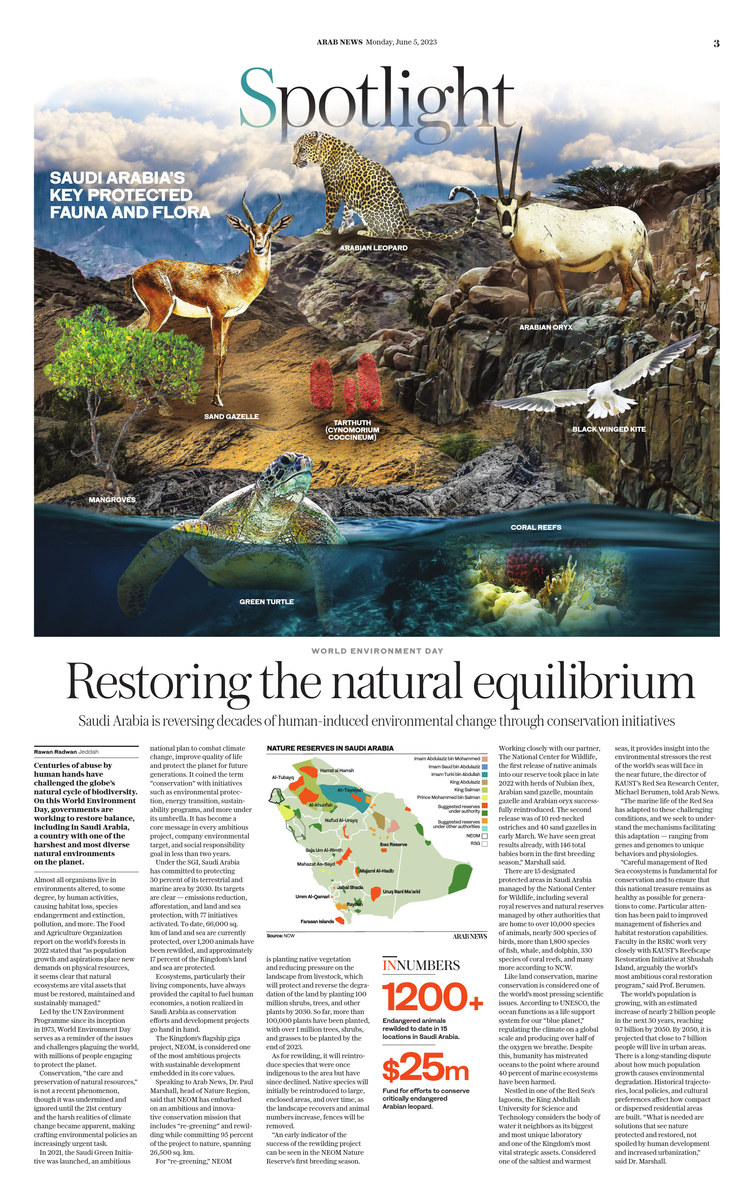JEDDAH: Centuries of abuse by human hands have challenged the globe’s natural cycle of biodiversity. On this World Environment Day, governments are working to restore balance, including in Saudi Arabia, a country with one of the harshest and most diverse natural environments on the planet.
Almost all organisms live in environments altered, to some degree, by human activities, causing habitat loss, species endangerment and extinction, pollution, and more. The Food and Agriculture Organization of the United Nations report on the world’s forests in 2022 stated that “as the window for action narrows, and as population growth and aspirations place new demands on physical resources, it seems clear that natural ecosystems are vital assets that must be restored, maintained and sustainably managed.”
Led by the UN Environment Programme since its inception in 1973, World Environment Day, the most influential global platform for environmental outreach, serves as a reminder of the issues and challenges plaguing the world, with millions of people engaging to protect the planet.
Conservation, “the care and preservation of natural resources,” is not a recent phenomenon, though it was undermined and ignored until the 21st century and the harsh realities of climate change became apparent, making crafting environmental policies an increasingly urgent task.
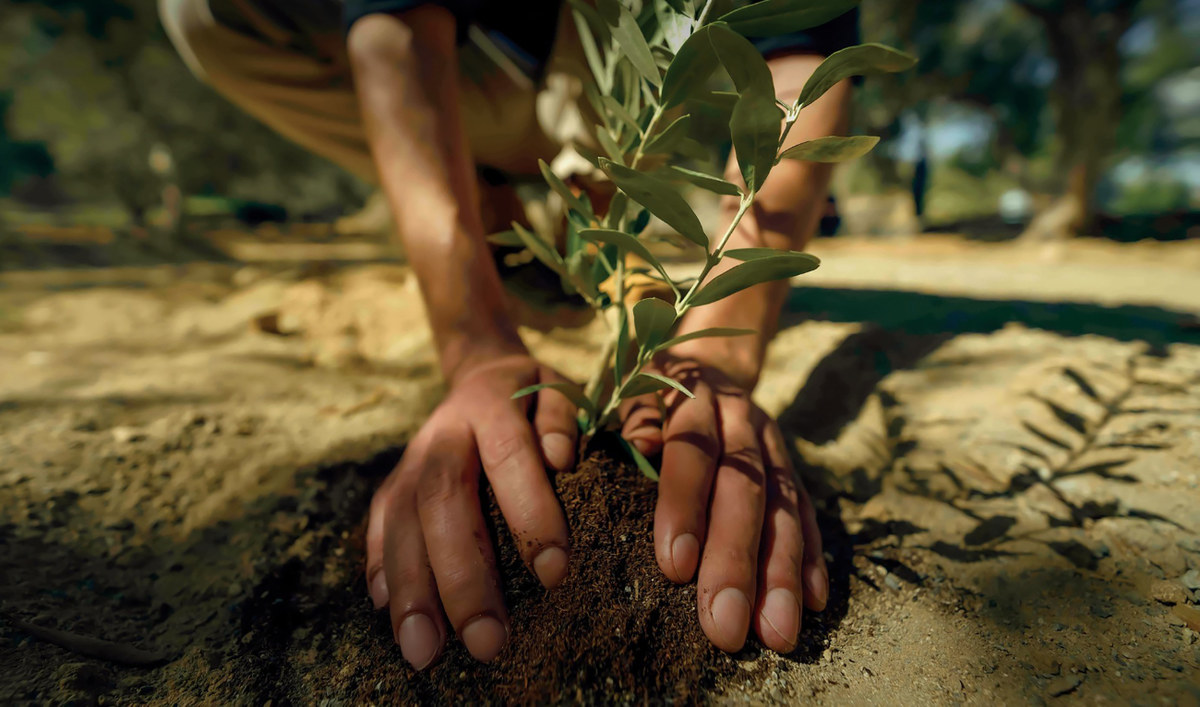
The Saudi Green Initiative, an ambitious national plan to combat climate change, was launched in 2021. (SGI)
It has often proven to be an uphill challenge. Realizing the consequences of inaction, there have been intense and determined campaigns to further the complex task of defining long-term goals at a time when nature is under assault, to issue guidelines and laws with profound changes in environmental infrastructure, and to promote environmental protection and conservation.
In 2021, the Saudi Green Initiative was launched, an ambitious national plan to combat climate change, improve quality of life and protect the planet for future generations. It coined the term “conservation” with initiatives such as environmental protection, energy transition, sustainability programs, and more under its umbrella. It has become a core message in every ambitious project, company environmental target, and social responsibility goal in less than two years.
Under the SGI, Saudi Arabia has committed to protecting 30 percent of its terrestrial and marine area by 2030. Its targets are clear — emissions reduction, afforestation, and land and sea protection, with 77 initiatives activated. To date, 66,000 sq. km of land and sea are currently protected, over 1,200 animals have been rewilded, and approximately 17 percent of the Kingdom’s land and sea are protected.
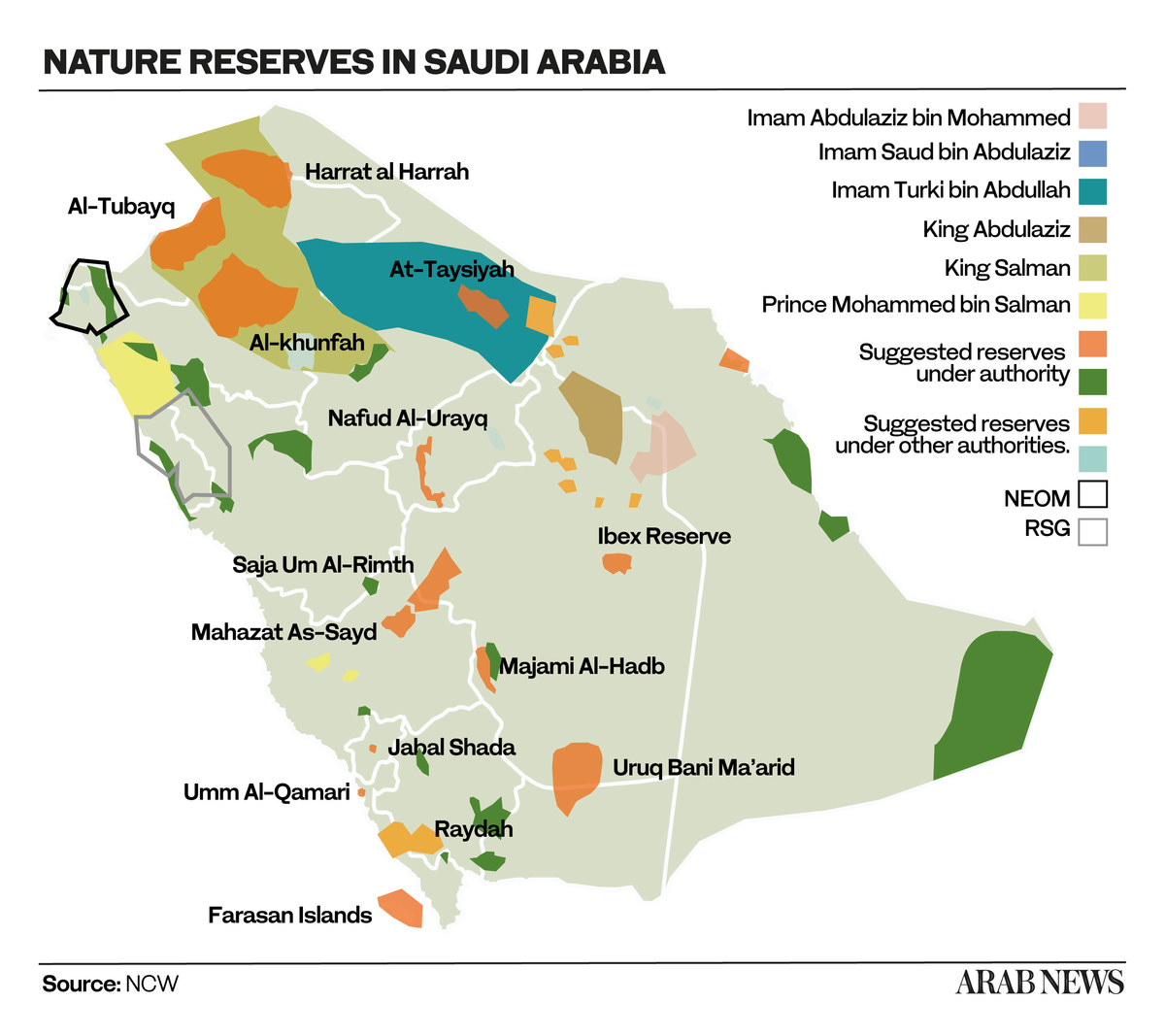
Ecosystems, particularly their living components, have always provided the capital to fuel human economies, a notion realized in Saudi Arabia as conservation efforts and development projects go hand in hand.
The Kingdom’s flagship giga-project, NEOM, is considered one of the most ambitious projects with sustainable development embedded in its core values.
While no universally acceptable, practical definition of sustainable development exists, the concept has evolved to encompass three significant points of view: economic, social, and environmental.
The economy is geared mainly toward improving human welfare, the environmental domain focuses on protecting the integrity and resilience of ecological systems, and the social domain emphasizes enriching human life and achievements and strengthening values and institutions.
INNUMBERS
- 1,200+ Endangered animals rewilded in 15 Saudi locations.
- $25m Fund for efforts to conserve critically endangered Arabian leopard.
- 8m Hectares of degraded land to be rehabilitated by 2030.
- 600m Trees to be planted by 2030.
- 10bn Trees planted is equivalent to rehabilitating 40m hectares of degraded land.
- 16% Terrestrial and 5.5% marine protected areas.
Speaking to Arab News, Dr. Paul Marshall, head of Nature Region, said that NEOM has embarked on an ambitious and innovative conservation mission that includes “re-greening” and rewilding while committing 95 percent of the project to nature, spanning 26,500 sq. km.
For “re-greening,” NEOM is planting native vegetation and reducing pressure on the landscape from livestock, which will protect and reverse the degradation of the land by planting 100 million shrubs, trees, and other plants by 2030. So far, more than 100,000 plants have been planted, with over 1 million trees, shrubs, and grasses to be planted by the end of 2023.
As for rewilding, it will reintroduce species that were once indigenous to the area but have since declined. Native species will initially be reintroduced to large, enclosed areas, and over time, as the landscape recovers and animal numbers increase, fences will be removed.
“An early indicator of the success of the rewilding project can be seen in the NEOM Nature Reserve’s first breeding season. Working closely with our partner, The National Center for Wildlife, the first release of native animals into our reserve took place in late 2022 with herds of Nubian ibex, Arabian sand gazelle, mountain gazelle and Arabian oryx successfully reintroduced. The total number of babies born this breeding season is 31. This is 23 Sand gazelle babies and 8 Ibex babies.
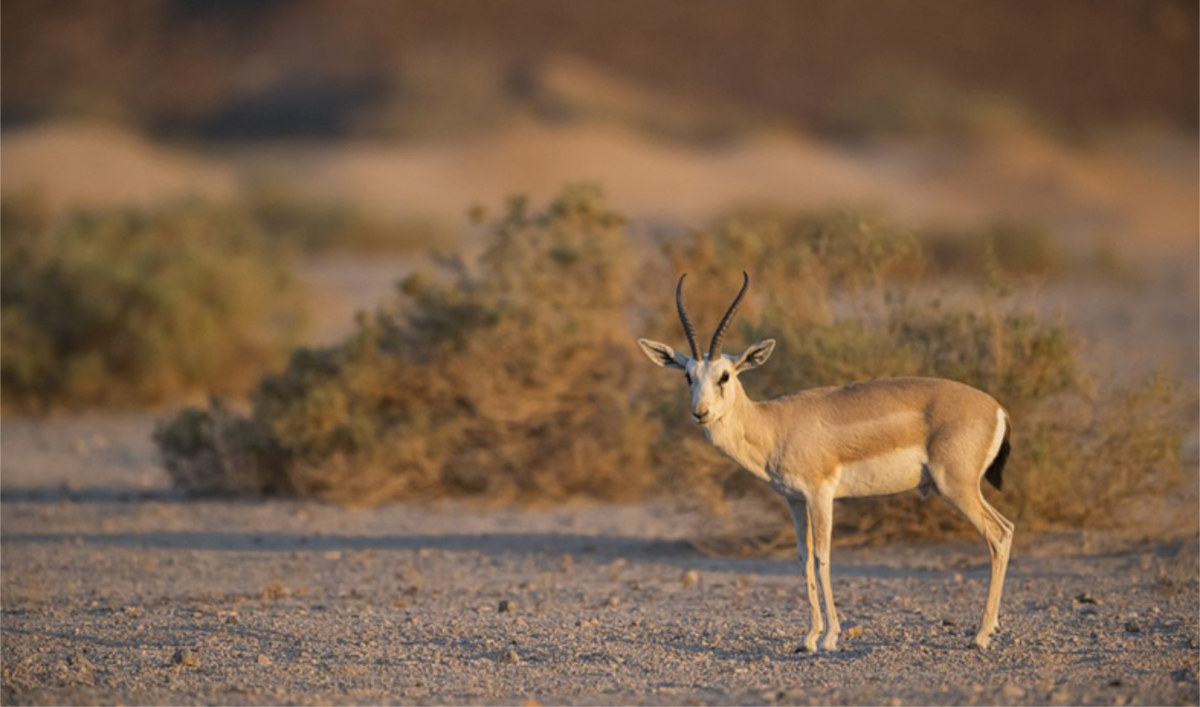
Arabian Sand Gazelle released at NEOM Nature Reserve in December 2022. (NEOM)
The achievement is challenging, as he explained that three elements are incorporated into NEOM’s animal distribution modeling. “The first assesses the immediately accessible areas to ensure a healthy and safe release environment, the second analyzes potential dispersal constraints, and the third simulate dispersal through time,” he said.
“For this, we work in conjunction with the plant rewilding team to ascertain where our animals’ potential food sources will be. This helps us model likely dispersal patterns and allows us to plot the regeneration of the reserve.
“In terms of a shift being needed to protect certain species, I think it’s fair to say that a century ago, if we had the tools, knowledge, expertise and capacity that we have now, the Nubian ibex, Arabian sand gazelle, mountain gazelle and Arabian oryx would never have disappeared from the region and would instead be thriving in a vibrant, rich and self-sustaining ecosystem. It is how we envisage NEOM’s land to be and what we are working towards.”
In a statement to Arab News on Sunday, NEOM said “the total number of babies born this breeding season is 31, including 23 sand gazelles and eight (Nubian) ibex. The total number of animals in the NEOM Nature Reserve is now 146.”
With its rich land and marine biodiversity, astounding wildlife, and breathtaking bird migrations passing above the Kingdom’s skies, it is difficult to disconnect the link between science from the initiatives.

Arabian Oryx being released into NEOM Nature reserve in December 2022 – the first time in more than 100 years the species walked the sands of this region. (NEOM)
There are 15 designated protected areas in Saudi Arabia managed by the National Center for Wildlife, including several royal reserves and natural reserves managed by other authorities that are home to over 10,000 species of animals, nearly 500 species of birds, more than 1,800 species of fish, whale, and dolphin, 330 species of coral reefs, and many more according to NCW.
Like land conservation, marine conservation is considered one of the world’s most pressing scientific issues. From space, Earth is a pale blue dot covered with more than 70 percent water.
According to UNESCO, the ocean functions as a life-support system for our “blue planet,” regulating the climate on a global scale and producing over half of the oxygen we breathe. Despite this, humanity has mistreated these life-giving oceans to the point where around 40 percent of marine ecosystems have been harmed.
Nestled in one of the Red Sea’s lagoons, the King Abdullah University for Science and Technology considers the body of water it neighbors as its biggest and most unique laboratory. and one of the Kingdom’s most vital strategic assets.

Coral reefs in the Red Sea. (Supplied)
Considered one of the saltiest and warmest seas, it provides insight into the environmental stressors the rest of the world’s seas will face in the near future, the director of KAUST’s Red Sea Research Center, Michael Berumen, told Arab News.
“The marine life of the Red Sea has adapted to these challenging conditions, and we seek to understand the mechanisms facilitating this adaptation — ranging from genes and genomes to unique behaviors and physiologies.
“Careful management of Red Sea ecosystems is fundamental for conservation and to ensure that this national treasure remains as healthy as possible for generations to come. Particular attention has been paid to improved management of fisheries and habitat restoration capabilities. Faculty in the RSRC work very closely with KAUST’s Reefscape Restoration Initiative at Shushah Island, arguably the world’s most ambitious coral restoration program,” said Prof. Berumen.
“The lessons learned from the Red Sea can be transferred to many other regions of the world. In line with KAUST’s educational objectives, the RSRC facilitates the training and education of future leaders in marine science through student and postdoctoral support,” he added.
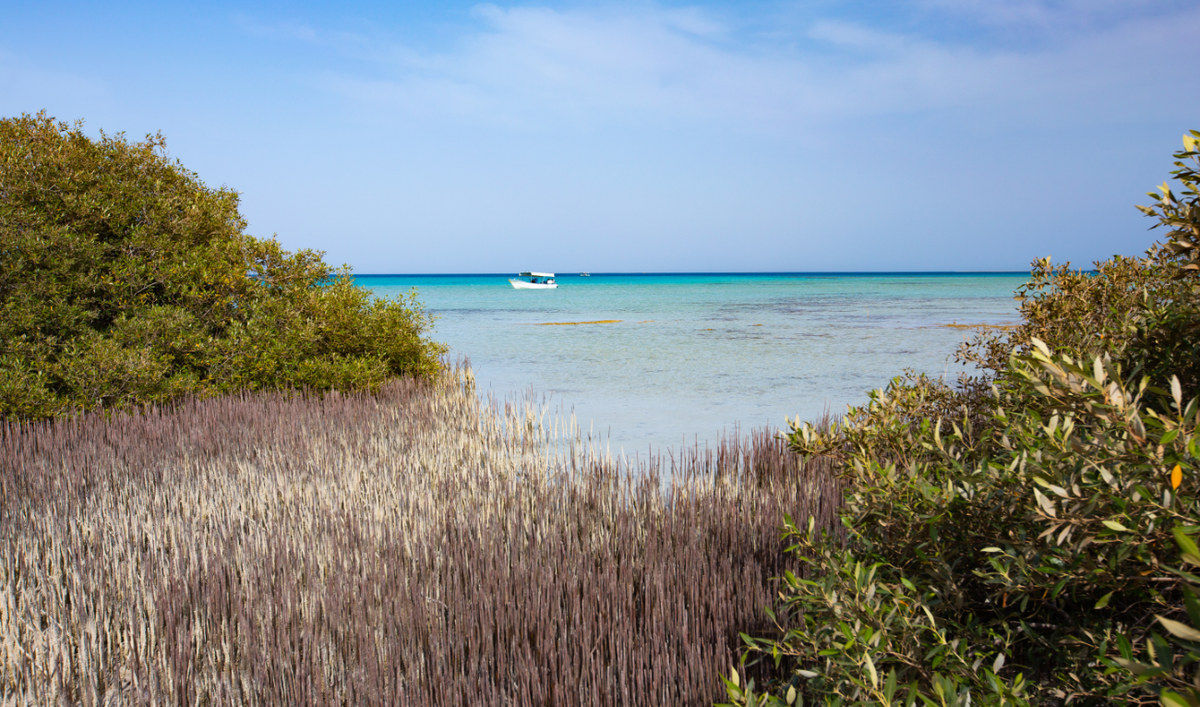
Wide angle view of plants on water and boats in the distance on the Mangrove Coastline. (Supplied)
The world’s population is growing, with an estimated increase of nearly 2 billion people in the next 30 years, reaching 9.7 billion by 2050. The trend is toward migration into cities.
By 2050, it is projected that more than two-thirds of the world’s population — close to 7 billion people — will live in urban areas. There is a long-standing dispute about how much population growth causes environmental degradation.
Historical trajectories, local policies, and cultural preferences affect how compact or dispersed residential areas are built. “What is needed are solutions that see nature protected and restored, not spoiled by human development and increased urbanization,” said Marshall.
